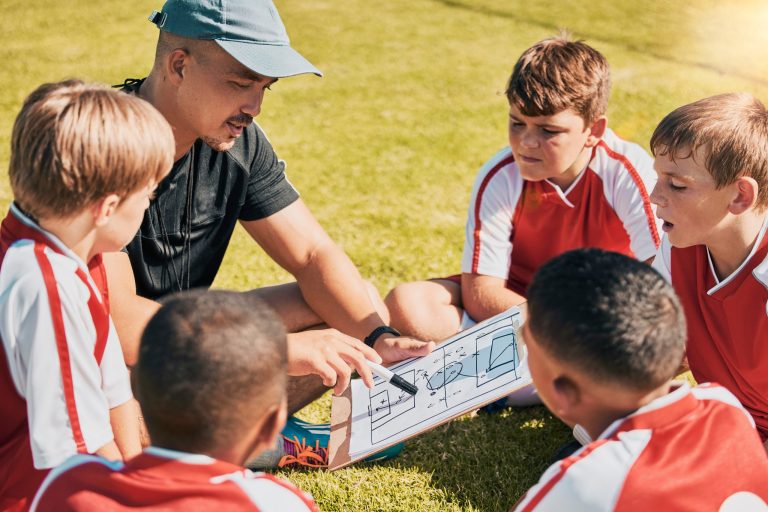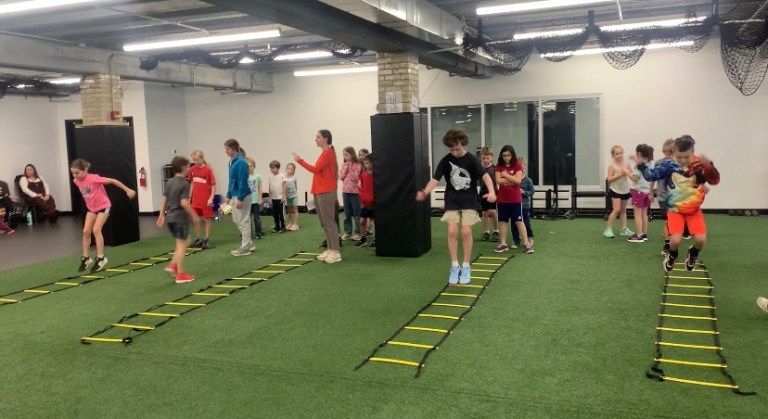Article
3 Ways Coaches Can Inspire Athletes
John O’Sullivan
coach winning character
Sign up for all the latest articles, resources, and tools to help you develop character in the athletes you lead.
As a coach, does your presence make your athletes’ day a better one? Do you recognize each and every one of them for their unique gifts and contributions to the team? Or do you only spend time with a few of your players, likely the starters and/or upperclassmen. Have you ever wondered why you had a roster full of talent, but no team?
Every athlete, whether a star player or the last one off the bench, needs three things from a coaching staff. The presence of these three things will help get every player to buy in. The absence, or worse, the antithesis, will destroy your culture, and tear your team apart.
Here are three keys to making your athlete’s eyes light up, improving performance, and building a championship culture:
1. RECOGNITION OF EACH PLAYER
Every player on a team needs recognition.
I am not talking about trophies for everyone and 8th place ribbons.
I am talking about the absolute need for a coach to take the time to recognize the contribution of every player who comes to practice, gives her all, and fulfills a role.
I am talking about the need for catching every player being good, and epitomizing core values.
You see, the star players usually get plenty of recognition. They win MVP’s and all-league awards, and they get recognized by classmates and fans. But what about the players who don’t get to play?
Without recognition, these players see themselves as anonymous. The same goes for every player on every team. No matter how much they love a sport, eventually they will grow to hate it if they do not get recognized for contributing something to the effort.
2) A RELEVANT ROLE FOR EACH ATHLETE
Every player needs a role. Some can be top scorer, others the top defender.
Some can be leaders, some can be supporters, some can be the smart guy, others the funny guy.
But most importantly, every player must be something.
Players without a role feel irrelevant. They feel like their hard work and effort don’t matter.
A coach who sends his reserves to work with the assistant coach every day and never coaches them makes them feel irrelevant.
A coach who never calls a reserve player into the office and compliments them for working hard, raising the level of practice, improving their shooting, something, anything, will lose that player.
You must find something about every player and let them know how that contributes to the greater good, and that their work matters.
If you believed at your job that no one would miss you if you were gone, chances are you would jump at the chance to do something else, and rarely go the extra mile. If your players feel the same way they will disengage too.
3) A WAY TO MEASURE EVERYONE'S CONTRIBUTION
It’s easy to measure goals and assists, points and defensive stops, tackles, and fumble recoveries. It’s easy to measure a time in a 100 yd dash or a swim meet.
But how do you measure things that are harder to measure? Let’s face it, a defender on a soccer team might never have a measurable statistic beyond minutes played, and if a coach consistently touts the goal scorers and shot takers, that defender can quickly start to believe that her contribution doesn’t matter.
But at least she is playing! What about the kid who doesn’t play?
You can have players measure free throws made, or juggling in soccer, and chart progress over a season. You can measure who shows up first or leaves last, and give recognition for that.
You can also find tangible ways to measure your team core values. If your team values effort, you can give out hustle points in practice.
If you value positivity, you can measure how often a player makes a teammate smile, or gives an encouraging word to a player who is struggling.
Every sport is different, but the more things you can measure, the more ways you can demonstrate how an athlete is not only progressing, but contributing to the greater good.
We value the things we can measure, so find ways to measure how each and every athlete contributes, or doesn’t contribute, so you can measure progress.
You must find something about every player and let them know how that contributes to the greater good
If your talented team is going down the tubes, before you look at your athletes, you need to look at yourself. If you don’t like what is happening, it’s not only up to your players to fix it. It’s up to you to fix it.
Do all your players feel valued? If not, fix it.
Do all your players have a role? If not, make them feel relevant.
Do you measure everyone’s contribution? If the answer is no, figure out a way how to.
Let’s make our athletes’ eyes shine. We might just win a championship. More importantly, we might just change a life.
(Read the full article at https://changingthegameproject.com/3-ways-coaches-can-inspire-athletes/)
READ THE LATEST
Where sport culture, relationships, character, identity, and faith collide.



